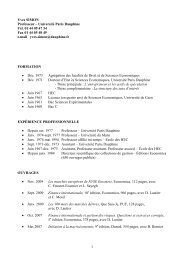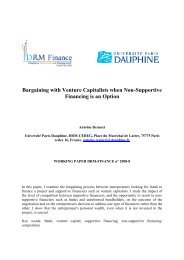Corporate governance and earnings management ... - CEREG
Corporate governance and earnings management ... - CEREG
Corporate governance and earnings management ... - CEREG
You also want an ePaper? Increase the reach of your titles
YUMPU automatically turns print PDFs into web optimized ePapers that Google loves.
more than a century, starting in 1880. Thirdly, it uses the social nature of accounting to<br />
explain the evolution of regulation for goodwill in the four countries studied.<br />
The remainder of this paper is organized as follows. The first section describes the existing<br />
literature on accounting regulation <strong>and</strong> on social nature of accounting which serves as our<br />
theoretical framework of analysis. The second section is dedicated to the identification of<br />
social forces which are supposed to be interested in the goodwill regulation. We analyze their<br />
general interests <strong>and</strong> directions to which these social forces should push the accounting<br />
regulation on goodwill. The third part examines four historical phases of accounting for<br />
goodwill in four countries <strong>and</strong> explains why these evolutions took place. The following<br />
section contains a discussion <strong>and</strong> a final section concludes the article.<br />
1. Accounting regulation <strong>and</strong> social nature of accounting<br />
1.1. Theories explaining accounting regulation<br />
For decades, accounting regulation has been arousing interests among researchers. Booth<br />
<strong>and</strong> Cocks (1990, p. 511) examine accounting st<strong>and</strong>ard-setting <strong>and</strong> note that its study has been<br />
pursued from five general research traditions: professional logic, neo-classical economics,<br />
cognitive psychology, the market for excuses <strong>and</strong> political lobbying. Lobbying has been<br />
extensively invoked in explaining st<strong>and</strong>ard-setting (Sutton, 1984; Tutticci, Dunstan &<br />
Holmes, 1994; Weetman, Davie & Collins, 1996; Van Lent, 1997; McLeay, Ordelheide &<br />
Young, 2000; Zeff, 2002). The concept of “interest groups” has also been developed (Walker,<br />
1987). Conflicting agendas (Walker & Robinson, 1994a) or inter-organizational conflict<br />
(Walker & Robinson, 1994b) may also explain st<strong>and</strong>ard-setting. Booth <strong>and</strong> Cocks propose a<br />
power analysis (1990, p. 524).<br />
Nobes (1992), setting out to explain the history of goodwill in the UK, proposes a cyclical<br />
model of st<strong>and</strong>ard-setting as a political process influenced by six parties: corporate managers,<br />
auditors, users, government, international opinion <strong>and</strong> upward force. Bryer (1995) develops<br />
6



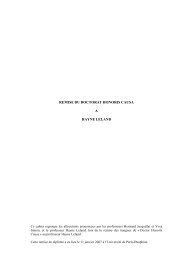
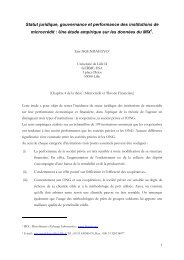
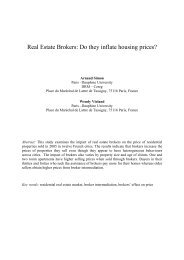
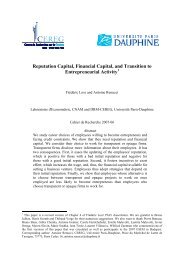
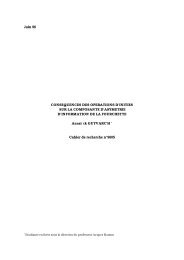
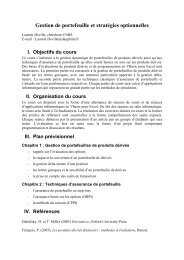
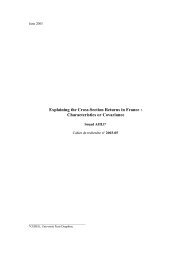
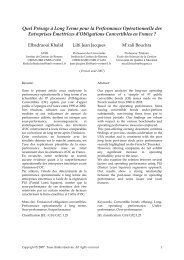

![& 6 ] ^ F ]^ - CEREG - Université Paris-Dauphine](https://img.yumpu.com/33326502/1/184x260/-6-f-cereg-universitac-paris-dauphine.jpg?quality=85)

